Aki-no (Autumn), the first Japanese film festival in Israel, will take place from October 18 – 30, 2016. Presenting a selection of contemporary cinema from Japan, the festival was initiated and programmed by the Holon Cinematheque, and supported by the Japan Foundation and the Japanese Embassy. Festival Artistic Director is Roni Mahadav-Levin, director of the Holon Cinematheque, and screenings will take place at the Holon, Tel Aviv, Haifa, Herzliya and Jerusalem cinematheques. The Aki-no Festival’s opening event will take place at the Holon Cinematheque on October 18 in the presence of the Japanese ambassador to Israel, Koji Tomita, and Holon Mayor Moti Sasson. The festival will present nine films in diverse genres: fiction, documentary, animation, suspense, and horror.
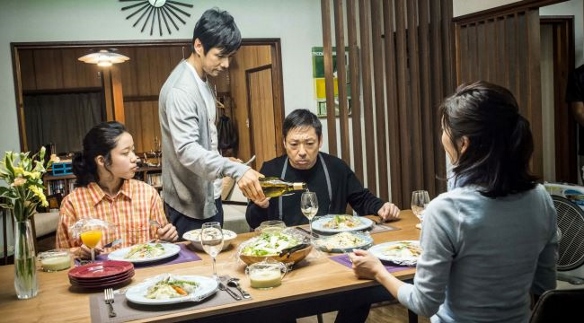
Kiyoshi Kurosawa’s Creepy is a suspenseful, psychological crime thriller, just on the edge of horror. It’s an intense, excellently crafted film that explores the extreme malevolence of the killer, yet is also a nuanced social critique of the insidious encroachment of isolation and alienation in contemporary culture, even in the most intimate of relationships. Koichi Takakura (Hidetoshi Nishijima) has decided he’s not cut out to be a detective and left the police force to teach criminology. Moving into a suburban neighborhood with his wife Yasuko (Yuko Takeuchi) and their dog Max, he looks forward to a more peaceful life. Yasuko is eager to get acquainted with the neighbors, although they rebuff all her friendly overtures. But Takakura’s vision of a calm, academic life is disrupted when a former colleague draws him into a cold case from six years ago – the shocking murder of an entire family, in which the only survivor was a teenage girl. As Yasuko settles into the neighborhood, and Takakura tracks the elusive killer, the plot lines converge into overwhelming creepiness and mounting tension. An excellent film, more profoundly disturbing than many of its genre, and far more thought-provoking.
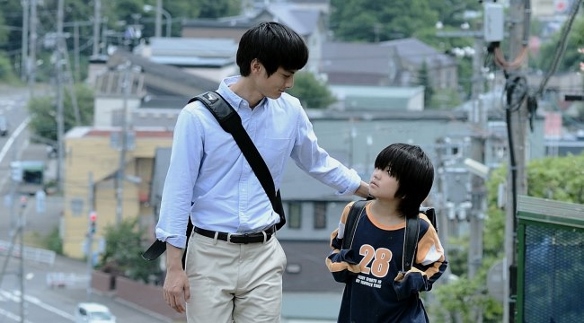
If Creepy may be described as an investigation of evil, Mipo O’s film endeavors to do the opposite. Delicate, lovely, and mysterious as the drifting cherry blossom petal that opens this film, Being Good follows several different narratives that touch upon one another in unexpected ways. Okano (Kengo Kora) is in his first year of teaching at Cherry Hill Elementary School. He believes that he is being good, or at least, good enough, but some classroom incidents shake his certainty. An elderly woman (Michie Kita) is always friendly to the autistic boy (Amon Kabe) who passes by her home on his way to school. Yet his mother (Yasuko Tomita) is always apologizing for her son, assuming that his presence is a bother. Masami (Machiko Ono), a young mother, tries to make friends with the other mothers in the park, yet her loneliness, frustration, and uncertainties are taken out on her small daughter Ayane (Noa Miyake). One boy in Okano’s class is so shy and tense he’s afraid to ask for permission to go to the bathroom, another so aggressive he challenges just about everything and everyone, and yet another hangs around the schoolyard every afternoon, afraid to go home. The different narratives are not so much inter-related as reflecting on one another, and when the moment of understanding arrives (no spoilers here), it is radiant.
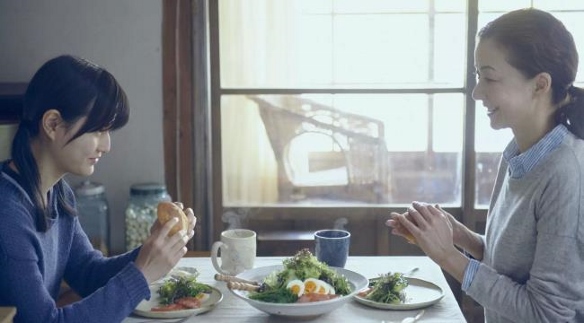
Little Forest is an invitation to immerse in a life orchestrated by the seasons. The four-part series (shown in two parts) directed by Junichi Mori is centered on the daily life of a young woman in the small (fictional) village of Komori in Tohoku. The lovely, extremely capable and independent Ichiko (Ai Hashimoto) has returned to the family home after spending a year living with her boyfriend in the big city. The cinematography is lush and rich with color as one follows Ichiko through the seasons, growing and catching much of her own food, and preparing it with care, peppered with her thoughts, fantasies and memories. From wild nettles to homemade Nutella, the recipes and slow-food life will appeal to foodies, and the film’s country pace, while may put some more action-minded viewers off, has a calm, meditative feel.
Festival Films
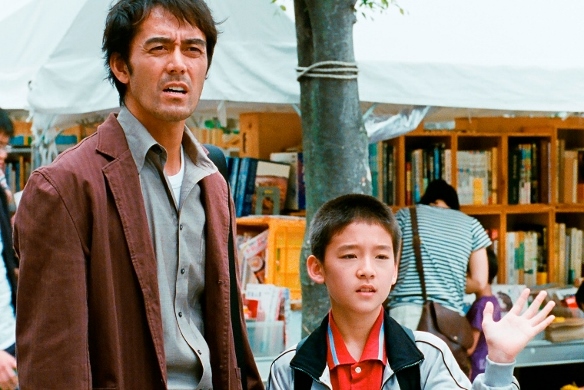
After the Storm (Umi Yori Mo Mada Fukaku)
Directed by Hirokazu Kore-eda
Japan, 2016, 117 min, Japanese dialogue with Hebrew and English subtitles.
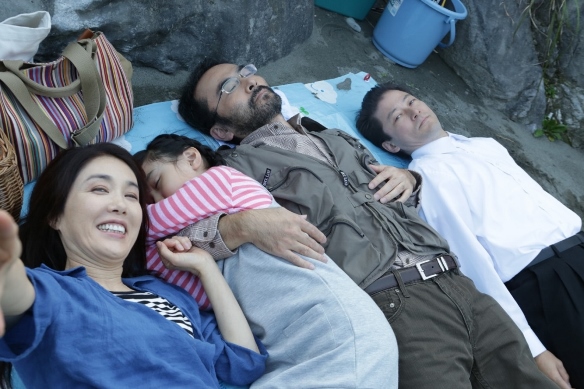
Harmonium (Fuchi Ni Tatsu)
Directed by Kôji Fukada
Japan/France, 2016, 118 min, Japanese dialogue with Hebrew and English subtitles.
Creepy
Directed by Kiyoshi Kurosawa.
Japan, 2016, 130 min, Japanese dialogue with Hebrew subtitles.
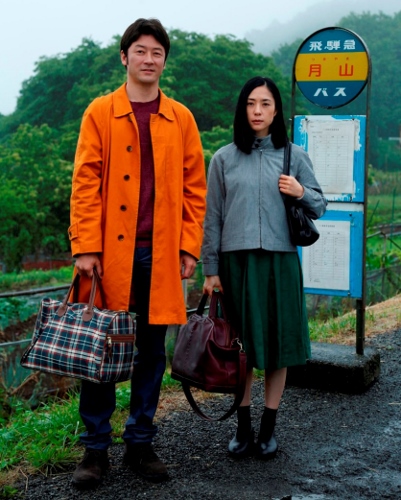
Journey to the Shore
Directed by Kiyoshi Kurosawa.
Japan, 2015, 128 min, Japanese dialogue with Hebrew and English subtitles.

The Murder Case of Hana & Alice
Directed by Shunji Iwai.
Japan, 2015, 100 min, Japanese dialogue with Hebrew and English subtitles. Animation, recommended for ages 9+.
Little Forest
Directed by Jun’ichi Mori. The film will be shown in two parts; each part has two chapters. Little Forest – Summer/Autumn, Japan, 2015, 111 min, Japanese dialogue, Hebrew subtitles. Little Forest – Winter/Spring, Japan, 2015, 120 min, Japanese dialogue, Hebrew subtitles.
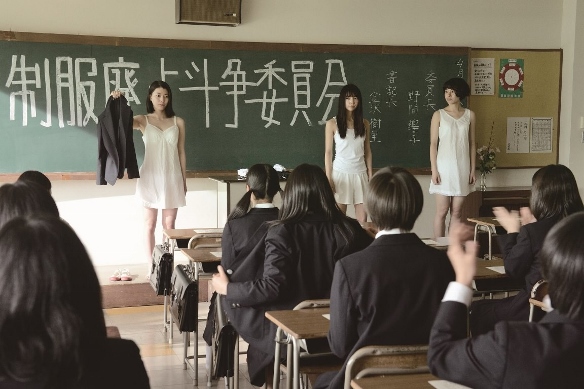
A cappella
Directed by Hitoshi Yazaki
Japan, 2016, 132 min, Japanese dialogue with Hebrew subtitles
Being Good
Directed by Mipo O
Japan, 2015, 121 min, Japanese dialogue with Hebrew and English subtitles.
Holon Cinematheque – October 18 – 25, 2016
Tel Aviv Cinematheque – October 22 – 27, 2016
Jerusalem Cinematheque – October 18 – 21, 2016





